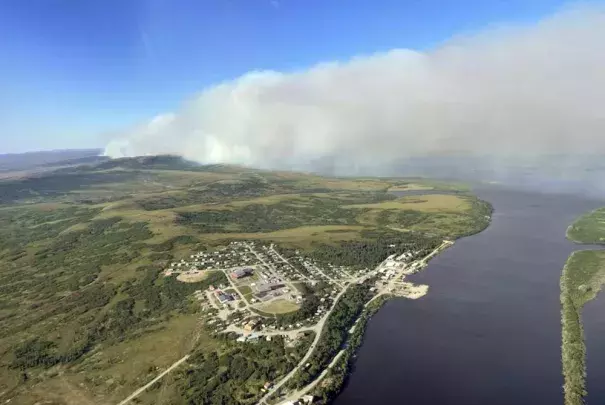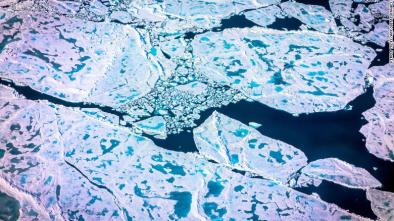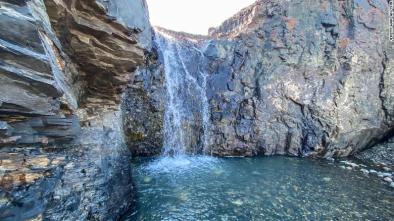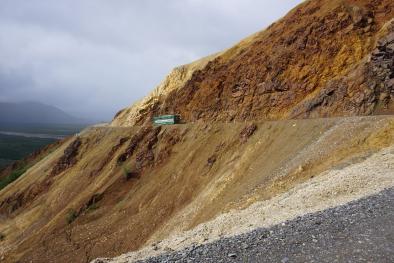Yup'ik People Defend Homes From Climate-Fueled Fires In Yukon Delta

The Yup'ik people are fighting to protect their communities on the Yukon River from the second largest Alaska tundra wildfire in 40 years. The East Fork Fire, one of more than 20 fires burning around the Yukon Kuskokwim Delta, has already incinerated more than 120,000 acres and is just 3.5 miles from the town of St. Mary's. The fires, ignited by lightning, have been supercharged by climate change, UA-Fairbanks climate specialist Rick Thoman told KYUK. Residents of the community — and nearby Pitkas Point, Mountain Village, and Pilot Station — along with firefighters from Alaska and the lower 48 states, are contributing to the efforts to contain the fires. One 17-year-old helping clear trees to stop the fire's spread told NPR seeing the community come together to assist in the fire prevention "was fun, but it is kinda scary. But we're being cautious and we at least did a little something for our community." His mother Pamela Tai, meanwhile, was cooking for the firefighters, telling NPR, "I make it with love, honey, with love. So when they eat, they fill themselves up with lots of love." Indigenous groups in what is now the United States, in addition to surviving centuries of ethnic cleansing, are disproportionately harmed by extractive industries and the impacts of climate change, which is mainly caused by the extraction and combustion of fossil fuels.
(NPR, KYUK, Alaska Public Media, AP; Climate Signals: Wildfires, Arctic Amplification)
To receive climate stories like this in your inbox daily click here to sign up for the Hot News Newsletter from Climate Nexus:
Related Content





